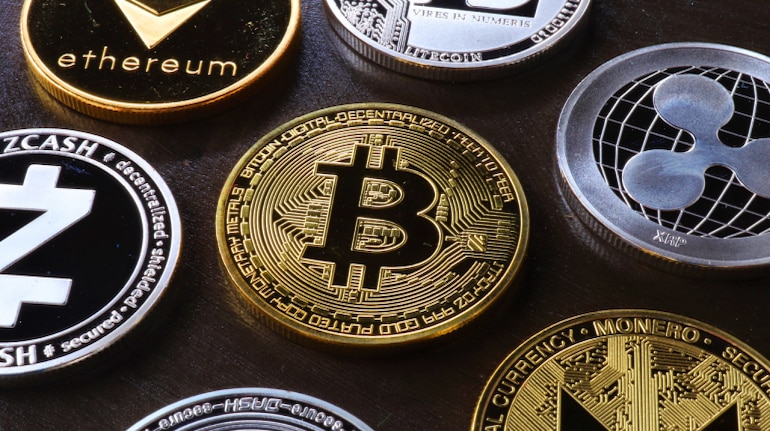



The sudden collapse of one of the most high-profile cryptocurrency exchanges, FTX, has plunged the crypto world into crisis. The value of Bitcoin, the best-known cryptocurrency, plunged 16 percent, bringing it 75 percent below the peak value attained, a year ago.
Several crypto businesses have declared losses, suspended redemptions of client deposits. The FTX bankruptcy proceedings have revealed a shockingly lackadaisical attitude to basic accounting and fiduciary responsibility, related party lending and general anarchy, if not outright fraud. Pressure is mounting to bring cryptocurrencies under regulation.
While the fortunes of FTX and its once-charismatic founder, Sam Bankman-Fried (yes, the name carried within it happy tidings for those who deal with money), are an interesting tale in themselves, what is more germane is the future of the cryptocurrency itself. The repeated rise in central bank interest rates had led to significant deleveraging in the crypto world, in May and June, making cryptocurrencies majorly lose value and bursting the bubble in which grown-up folk had allowed themselves to believe in financial versions of tall tales of magic beans that would sprout to produce vines that shoot up, overnight, into the sky, piercing through the clouds to reach a magic world far above the earth.
Will cryptocurrencies survive the ongoing squeeze, or will they survive merely in their officially blessed avatars as central bank digital currencies? Will they continue as totally decentralised finance, immune to regulation and government diktat? Where does this leave people who have invested in non-fungible tokens (NFTs)?
Cryptocurrencies are a genuine innovation in finance with the potential to sharply reduce the cost of cross-border transfers, do away with settlement uncertainty and associated bank guarantees, and simplify and automate contracted action contingent on receipt of funds. These benefits will ensure that cryptocurrency would survive.
But no longer the entire, flourishing undergrowth of ever new tokens issued by the next bunch of bright kids with a saviour complex, to whose oozing charisma, venture funds rush to swoon, somehow managing to write million-dollar cheques before they hit the ground (a Sequoia partner wrote a 13,000-word paean to Sam Bankman-Fried after listening to his pitch). Some coins would continue, probably not more than a handful.
It is tempting to assert that Bitcoin, the oldest and most widely-used cryptocurrency, would survive. It is a solid candidate, but is distinctly uncool from a climate perspective. It uses validation by a multitude, called proof of work, for verification of a transaction, and that consumes a lot of power. Ethereum, in contrast, runs on validation by a few highly capitalised entities, in a method called proof of stake, and its energy consumption is less than one percent of what proof of work calls for.
But it is safe to say that those that survive, and the platforms on which they are transacted, would be the ones that submit themselves to regulation. Coinbase will probably grow, even as Binance, the biggest crypto exchange at present, struggles. Central bank digital currencies would, of course, emerge as the safest, most trusted and gradually, the most-used cryptocurrencies.
Most jurisdictions have fractured financial regulation, very few have unified regulation as in Britain. So central banks and regulators of securities trading and derivatives trading are all likely to have a role in regulating the issuance, trading, holding, and lending of cryptocurrencies.
In India, the Reserve Bank of India (RBI) has opposed giving recognition to cryptocurrencies other than its own digital rupee, experimentally released recently for use in the debt market. So if anyone loses money on digital currencies, say, by keeping money in wallets whose issuer folds up or with an exchange like FTX that becomes bankrupt, or in currencies that lose most of their value, like the coin issued by FTX, they will have no recourse.
But there is a good reason for the RBI to recognise digital currencies other than its own. The world needs an alternative to the US Dollar to settle international payments. Today, even when the transaction involves no American counterparty, it would, more likely than not, be settled in dollars. This allows the US government to weaponise the dollar, threatening to cut off from New York’s dollar pipelines anyone who is deemed beyond the pale by the government of the United States.
As an experiment involving the United Arab Emirates, Thailand, and China’s digital yuan, using a framework built on the Ethereum blockchain by the Bank for International Settlements (BIS)’s Innovation Hub at Hong Kong, cryptocurrencies have a great future in moving money across borders. What form this would take is difficult to say. JP Morgan has its own coin system to facilitate fast, cost-effective payments for its clients. The RBI cannot but agree to join the party, with its own digital currency and with digital currencies issued, perhaps, by regulated entities as per its norms.
What about NFTs? These use the same technology that underlies cryptocurrency, the blockchain, but are very different from cryptocurrency. Just as in the case of cryptocurrency, they have value because people believe they have value. If people stop believing they have value, as has happened with dodgy coins, they would turn worthless.
But NFTs are not money, they are certificates of uniqueness. The first song to be released from an album, the ‘original’ version of a piece of digital art capable of being copied endlessly, and so on. So long as this uniqueness has intrinsic merit, NFTs will retain value, whatever happens to digital currencies.

Discover the latest Business News, Sensex, and Nifty updates. Obtain Personal Finance insights, tax queries, and expert opinions on Moneycontrol or download the Moneycontrol App to stay updated!
Find the best of Al News in one place, specially curated for you every weekend.
Stay on top of the latest tech trends and biggest startup news.